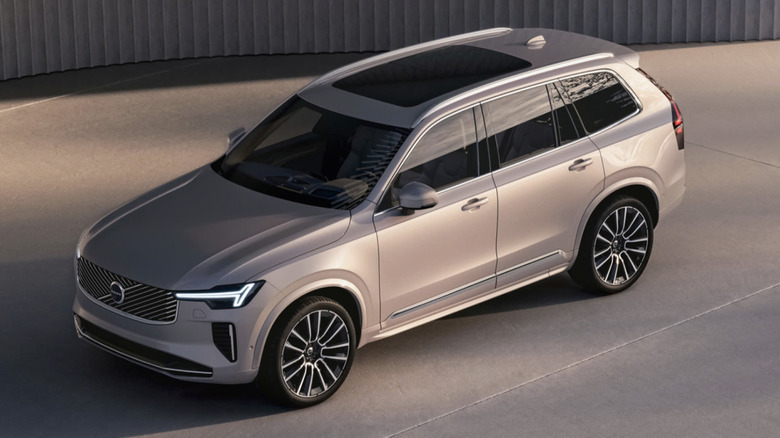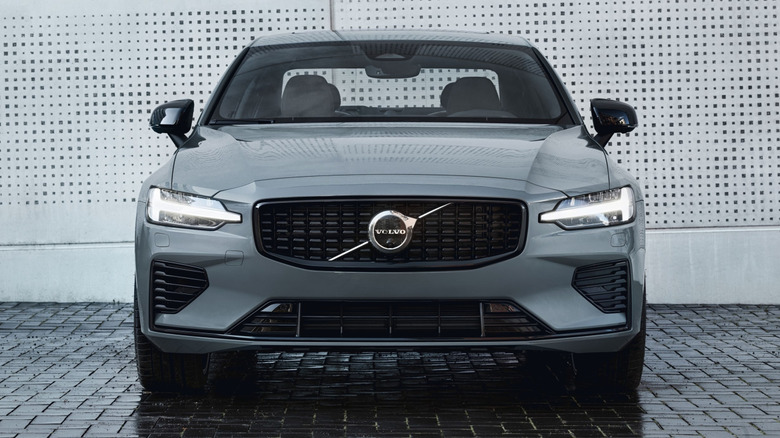
Perhaps best known for its safety innovations, Volvo has also built some of the most durable cars of all time — including the 1966 Volvo P1800 that Irv Gordon drove for a Guinness World Record 3.2 million miles. The only reason Gordon stopped driving his highly reliable, high-mileage Volvo was that he passed away in 2018, with the car returning to Volvo at the time. Nor has this been the only million-mile Volvo to make news.
Of course, those models are from Volvo's independent era, which ended when Ford bought the company in 1999 and then sold it to its current owner, China's Geely Holding Group, in 2010. Much has changed over that period, obviously, and nowadays Consumer Reports says that most new Volvos rate average or lower for predicted reliability. As a result, the Volvo itself was rated No. 15 in CR's 2025 list for new-car reliability, one spot behind Genesis — Hyundai's luxury division — and one spot ahead of Chevrolet.
It's also worth pointing out that Volvo ranked pretty far down on the leaderboard for Maintenance & Repair Costs, too, sitting in 24th place (out of 28 brands rated). Volvo does come in at No. 7 in CR's ratings for Used Car Reliability, though. Now, let's look at the individual members of the 2025 lineup, keeping in mind that CR does not have full results for the ES90, V60, V90, EX90, or EX30. The EX30 in particular proved to us that Volvo is at least still good at building fun, affordable cars.
Consumer Reports recommended a pair of Volvo SUVs for 2025, both with the same score of 42 out of 100 for predicted reliability. In fact, six different Volvos tied for predicted reliability, including the Recommended XC90 luxury three-row SUV, and the XC60 Plug-in Hybrid (one of CR's luxury compact SUVs), but also the non-hybrid XC60, the S60 luxury compact car, the V60 compact station wagon, the S90 luxury midsize car, and the V90 wagon version — all of which missed out on Recommended status for other reasons.
Drilling a little deeper, even the recommended Volvos weren't especially reliable for their classes. The XC90 finished in a ninth-place tie for predicted reliability with the Cadillac XT6, and four of its competitors had scores 50% higher than the Volvo. The XC60 Plug-in Hybrid is down in the 12th spot with the non-hybrid XC60. On the other hand, CR does have historical reliability data for the XC60 Plug-in, unlike for the XC90. Here, we can see that the XC60 Plug-In has three consecutive years of the highest predicted reliability scores for brakes, and earned the same results in the two past years for its climate system and body hardware. That's good news for customers, since the XC60 crossover has become Volvo's best-selling car ever.
The bad news? Many of these Volvos have been subject to recalls. The recommended XC90, along with the C40, XC40, XC90, and V90, are associated with a recall for a malfunctioning backup camera. The V60, S60, XC60, S60, and S90 are under recall for the backup camera and faulty brake function. The EX90 is subject to recalls for improperly tightened seats, a structurally compromised tailgate, and malfunctioning headlights.
The five non-recommended Volvos we mentioned (S60/V60, S90/V90, and XC60) did manage to separate themselves from the brand's bottom dwellers: the EX30, C40, XC40, and EX90. They also had a few CR reliability bright spots among their results. The sleek S60 sedan and its wagon sibling, the V60, are within shouting distance of the BMW 3 Series, Mercedes-Benz C-Class, and Cadillac CT5, although well off the pace of the segment-leading Audi A4 and A5. Further, these cars lack historic reliability data from 2021 forward. So, the "predicted" part of the cars' predicted reliability score is doing a lot of heavy lifting here.
It was a similar story for the larger Volvo S90 and V90, the latter of which we called a masterclass in power and luxury in its Cross Country configuration. For CR, each had predicted reliability rankings at the bottom of their class, but with no detailed information available. As CR admits, "We do not have a large enough sample size to provide results of statistical confidence" for vehicles like this.
Finally, it's the Volvo XC60 that shows how factors beyond reliability affect whether a vehicle is recommended or not. The recommended XC60 Plug-in is essentially the same SUV as the gas-only XC60 that wasn't recommended, and as mentioned, both had the same reliability results. The key difference is that the Plug-in has a much better driving experience, thanks in part to the added power and efficiency of its hybrid setup.
















